A new family blog coming soon
As time has permitted I have been compiling a new blog for our journey as a family in joining the Lord in what He is doing amongst the nations...
As time has permitted I have been compiling a new blog for our journey as a family in joining the Lord in what He is doing amongst the nations...
 Steady Agricultural Development
Steady Agricultural Development e. The promulgation of the Regulations on Commercial Performance Administration in 1997, in particular, represented a major milestone in cultural market legislation. Over the past years, a planned and step-by-step effort to tackle problems in the cultural market has been made and the result has been good. The macro-control measures taken to regulate the performance market, in particular, have created a positive market environment for the growth of traditional Chinese arts and classical Western arts. The rearrangement of the audio and video market has resulted in an obvious increase in the market share of authentic products. Since January 1997, a program-supply system has been introduced to ensure that video projection rooms all over the country play only authentic films, thereby ensuring the healthy development of the market.
e. The promulgation of the Regulations on Commercial Performance Administration in 1997, in particular, represented a major milestone in cultural market legislation. Over the past years, a planned and step-by-step effort to tackle problems in the cultural market has been made and the result has been good. The macro-control measures taken to regulate the performance market, in particular, have created a positive market environment for the growth of traditional Chinese arts and classical Western arts. The rearrangement of the audio and video market has resulted in an obvious increase in the market share of authentic products. Since January 1997, a program-supply system has been introduced to ensure that video projection rooms all over the country play only authentic films, thereby ensuring the healthy development of the market.Augustine (Aurelius Augustinus) was one of the greatest theologians of Western Christianity. (In his day the Mediterranean world consisted of an Eastern, Greek-speaking half and a Western, Latin-speaking half, with different ways of looking at things, and different habits of thought.) He was born 13 November 354 in North Africa, about 45 miles south of the Mediterranean, in the town of Tagaste (36:14 N 8:00 E) in Numidia (now Souk-Ahras in Algeria), near ancient Carthage (modern Tunis, 36:50 N 10:13 E). His mother, Monnica, was a Christian , and his father for many years a pagan (although he became a Christian before his death). His mother undertook to bring him up as a Christian, and on one level he always found something attractive about Christ, but in the short run he was more interested in the attractions of sex, fame, and pride in his own
 cleverness. After a moderate amount of running around as a teen-ager, he took a mistress, who bore him a son when he was about eighteen. Theirs was a long-term relationship, apparently with faithfulness on both sides, and the modern reader is left wondering why he did not simply marry the girl. He never tells us this (and in fact never tells us her name), so that we can only guess. It seems likely that she was a freedwoman, and the laws forbade marriage between a free-born Roman citizen and a slave, or an ex-slave. In a well-known chapter, Augustine describes his conversion. His intellectual objections had lost their force, and he was at a point where the difficulty was that he seemed unable to make a commitment to living chastely, or unable to make a commitment, period. He heard of a group of young men, Christians, one of whom decided to become a desert hermit, whereupon the others, one at a time, made the same commitment, encouraged and inspired by the examples of those in the group who had already done so. (In many circles at that time, becoming a desert hermit had the same overtones as joining the Peace Corps did for many young persons in the 1960's, or joining the armed forces for many in the weeks immediately after the attack on Pearl Harbor.) Augustine went aside to ponder the question, "How is it that these young men can make so drastic a commitment, and I cannot take even the first step of declaring myself a Christian?" He heard what seemed to be a child's voice coming from next door, saying over and over, "Tolle, lege; tolle, lege," or, "Pick up and read; pick up and read." Since he could not think of any reason why a child would be saying that, he took it as an omen, and picked up a copy of Paul's Epistle to the Romans. As he opened it, his eye fell on the end of the thirteenth chapter: The night is far gone, the day is at hand. Let us then cast off the works of darkness and put on the armor of light; let us conduct ourselves becomingly as in the day, not in reveling and drunkenness, not in debauchery and licentiousness, not in quarreling and jealousy. But put on the Lord Jesus Christ, and make no provision for the flesh, to gratify its desires. As he read, he experienced this as God speaking directly to him, convicting him of his past sins, and offering him forgiveness; calling him to amend his life, and promising him the grace and power to do it. He burst into tears, and surrendered. Later, he wrote: Late have I loved Thee, O Lord; and behold, Thou wast within and I without, and there I sought Thee. Thou was with me when I was not with Thee. Thou didst call, and cry, and burst my deafness. Thou didst gleam, and glow, and dispell my blindness. Thou didst touch me, and I burned for Thy peace. For Thyself Thou hast made us,and restless our hearts until in Thee they find their ease. Late have I loved Thee, Thou Beauty ever old and ever new. Thou hast burst my bonds asunder; unto Thee will I offer up an offering of praise.
cleverness. After a moderate amount of running around as a teen-ager, he took a mistress, who bore him a son when he was about eighteen. Theirs was a long-term relationship, apparently with faithfulness on both sides, and the modern reader is left wondering why he did not simply marry the girl. He never tells us this (and in fact never tells us her name), so that we can only guess. It seems likely that she was a freedwoman, and the laws forbade marriage between a free-born Roman citizen and a slave, or an ex-slave. In a well-known chapter, Augustine describes his conversion. His intellectual objections had lost their force, and he was at a point where the difficulty was that he seemed unable to make a commitment to living chastely, or unable to make a commitment, period. He heard of a group of young men, Christians, one of whom decided to become a desert hermit, whereupon the others, one at a time, made the same commitment, encouraged and inspired by the examples of those in the group who had already done so. (In many circles at that time, becoming a desert hermit had the same overtones as joining the Peace Corps did for many young persons in the 1960's, or joining the armed forces for many in the weeks immediately after the attack on Pearl Harbor.) Augustine went aside to ponder the question, "How is it that these young men can make so drastic a commitment, and I cannot take even the first step of declaring myself a Christian?" He heard what seemed to be a child's voice coming from next door, saying over and over, "Tolle, lege; tolle, lege," or, "Pick up and read; pick up and read." Since he could not think of any reason why a child would be saying that, he took it as an omen, and picked up a copy of Paul's Epistle to the Romans. As he opened it, his eye fell on the end of the thirteenth chapter: The night is far gone, the day is at hand. Let us then cast off the works of darkness and put on the armor of light; let us conduct ourselves becomingly as in the day, not in reveling and drunkenness, not in debauchery and licentiousness, not in quarreling and jealousy. But put on the Lord Jesus Christ, and make no provision for the flesh, to gratify its desires. As he read, he experienced this as God speaking directly to him, convicting him of his past sins, and offering him forgiveness; calling him to amend his life, and promising him the grace and power to do it. He burst into tears, and surrendered. Later, he wrote: Late have I loved Thee, O Lord; and behold, Thou wast within and I without, and there I sought Thee. Thou was with me when I was not with Thee. Thou didst call, and cry, and burst my deafness. Thou didst gleam, and glow, and dispell my blindness. Thou didst touch me, and I burned for Thy peace. For Thyself Thou hast made us,and restless our hearts until in Thee they find their ease. Late have I loved Thee, Thou Beauty ever old and ever new. Thou hast burst my bonds asunder; unto Thee will I offer up an offering of praise.
 rity nationalities, total 160 million, only 6.7 percent of the Chinese nation. Of the minority nationalities, 15 have over a million people each; 13 over 100,000 each; 7 over 50,000 each; and 20 have fewer than 50,000 people each. The Han people live all over the country but their compact communities are in the Huanghe, Changjiang and Zhujiang valleys and the Songhua-Liaohe Plain of the northeast. The minority nationalities inhabit 60 percent of the country's total area, and they live mainly in the border regions. All nationalities in China are equal, as stipulated by the Constitution of the People's Republic of China, They take part in the administration of state affairs as equals, irrespective of their numbers or the size of areas they inhabit. Every minority nationality is represented in the National People's Congress, which is the highest organ of state power of the People's Republic of China.
rity nationalities, total 160 million, only 6.7 percent of the Chinese nation. Of the minority nationalities, 15 have over a million people each; 13 over 100,000 each; 7 over 50,000 each; and 20 have fewer than 50,000 people each. The Han people live all over the country but their compact communities are in the Huanghe, Changjiang and Zhujiang valleys and the Songhua-Liaohe Plain of the northeast. The minority nationalities inhabit 60 percent of the country's total area, and they live mainly in the border regions. All nationalities in China are equal, as stipulated by the Constitution of the People's Republic of China, They take part in the administration of state affairs as equals, irrespective of their numbers or the size of areas they inhabit. Every minority nationality is represented in the National People's Congress, which is the highest organ of state power of the People's Republic of China.  ual increase of 14.9 percent. The state-owned enterprises and collective-owned enterprises increased annually by 7.6 percent and 19.7 percent respectively on the average. The quality of various industrial products improved constantly and the passive state resulting from long-term shortage of industrial products in the country came to an end. As a result, there was a sufficient supply of daily consumer goods in the market. Even the insufficiency of some basic industrial products such as coal and power, which had restricted the growth of Chinese economy, was also noticeably eased up.In the past two decades, China has completed and put into operation 1,906 large and medium-sized industrial projects and increased an investment of 3.2877 trillion yuan in industrial fixed assets. The completion of such large projects as the Beijing-Kowloon Railway, the Nanchang-Kunming Railway and Qinshan and Daya Bay Atomic Power Stations strengthened the national economy for continued development.
ual increase of 14.9 percent. The state-owned enterprises and collective-owned enterprises increased annually by 7.6 percent and 19.7 percent respectively on the average. The quality of various industrial products improved constantly and the passive state resulting from long-term shortage of industrial products in the country came to an end. As a result, there was a sufficient supply of daily consumer goods in the market. Even the insufficiency of some basic industrial products such as coal and power, which had restricted the growth of Chinese economy, was also noticeably eased up.In the past two decades, China has completed and put into operation 1,906 large and medium-sized industrial projects and increased an investment of 3.2877 trillion yuan in industrial fixed assets. The completion of such large projects as the Beijing-Kowloon Railway, the Nanchang-Kunming Railway and Qinshan and Daya Bay Atomic Power Stations strengthened the national economy for continued development.
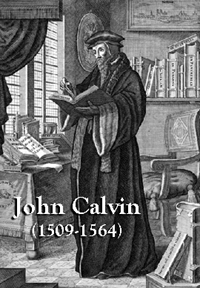
 China
China 


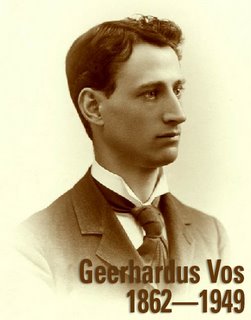

Julian Beever is an English artist who's known for his famous pavement art in England, France, Germany, USA, Australia and Belgium. Beever gives to his drawings an amazing 3D illusion. For those of you who know me...know; I enjoy good design, although not usually this kind, but this is exceptional. Not only does this have creativity and vision but the knowledge of lighting and shadows, our God is truly an Awesome God to give such talents to men, may we be godly stewards of the talents... etc. God had bestowed on us. I have only selected a few to share with those in the world that have not seen this amazing sidewalk art.

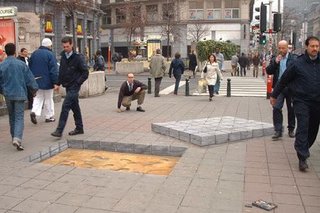


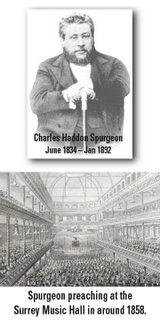


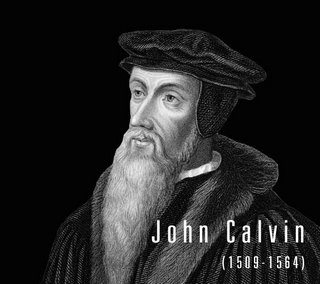










I saw in the right hand of Him who sat on the throne a book written inside and on the back, sealed up with seven seals. 2) And I saw a strong angel proclaiming with a loud voice, "Who is worthy to open the book and to break its seals?" 3) And no one in heaven or on the earth or under the earth was able to open the book or to look into it. 4) Then I began to weep greatly because no one was found worthy to open the book or to look into it; 5) and one of the elders said to me, "Stop weeping; behold, the Lion that is from the tribe of Judah, the Root of David, has overcome so as to open the book and its seven seals."
 6) And I saw between the throne (with the four living creatures) and the elders a Lamb standing, as if slain, having seven horns and seven eyes, which are the seven Spirits of God, sent out into all the earth. 7) And He came and took the book out of the right hand of Him who sat on the throne. 8) When He had taken the book, the four living creatures and the twenty-four elders fell down before the Lamb, each one holding a harp and golden bowls full of incense, which are the prayers of the saints. 9) And they sang a new song, saying, "Worthy are You to take the book and to break its seals; for You were slain, and purchased for God with Your blood men from every tribe and tongue and people and nation. 10) "You have made them to be a kingdom and priests to our God; and they will reign upon the earth." 11) Then I looked, and I heard the voice of many angels around the throne and the living creatures and the elders; and the number of them was myriads of myriads, and thousands of thousands, 12) saying with a loud voice, "Worthy is the Lamb that was slain to receive power and riches and wisdom and might and honor and glory and blessing." 13) And every created thing which is in heaven and on the earth and under the earth and on the sea, and all things in them, I heard saying, "To Him who sits on the throne, and to the Lamb, be blessing and honor and glory and dominion forever and ever." 14) And the four living creatures kept saying, "Amen " And the elders fell down and worshiped.” Revelation 5:1-14
6) And I saw between the throne (with the four living creatures) and the elders a Lamb standing, as if slain, having seven horns and seven eyes, which are the seven Spirits of God, sent out into all the earth. 7) And He came and took the book out of the right hand of Him who sat on the throne. 8) When He had taken the book, the four living creatures and the twenty-four elders fell down before the Lamb, each one holding a harp and golden bowls full of incense, which are the prayers of the saints. 9) And they sang a new song, saying, "Worthy are You to take the book and to break its seals; for You were slain, and purchased for God with Your blood men from every tribe and tongue and people and nation. 10) "You have made them to be a kingdom and priests to our God; and they will reign upon the earth." 11) Then I looked, and I heard the voice of many angels around the throne and the living creatures and the elders; and the number of them was myriads of myriads, and thousands of thousands, 12) saying with a loud voice, "Worthy is the Lamb that was slain to receive power and riches and wisdom and might and honor and glory and blessing." 13) And every created thing which is in heaven and on the earth and under the earth and on the sea, and all things in them, I heard saying, "To Him who sits on the throne, and to the Lamb, be blessing and honor and glory and dominion forever and ever." 14) And the four living creatures kept saying, "Amen " And the elders fell down and worshiped.” Revelation 5:1-14
2 Peter 1:2-7

Nature can be cruel, but there is a raw beauty and a certain justice manifested within that cruelty. The alligator, one of the oldest and ultimate predators, can still fall victim to the team work inherent in the tight-knit social 'pack' structure bred into canines. Note the photo below, where the Alpha dog has a muzzle-hold on the gator preventing it breathing, while the remainder of the pack prevents the beast from rolling.

This is a good series of questions to be pondered by all, namely the way we would repond to a potenial non-believer who may ask these kinds of questions. Do we respond arrogantly? no, but we need to take seriously the notion that, we are to "handle correctly the word of Truth" and this comes by communing with our God and the studying of His Word and prayer, ohh...that we would pray.
 This was very convicting to me. We are to combat today's issues, questions and struggles through the lens of Scripture alone. Often times I'm more apt to look to myself, especially when I have stored up head knowledge that has yet to be applied. How about you? Please take the time to read Mike's string of question's to us all.
This was very convicting to me. We are to combat today's issues, questions and struggles through the lens of Scripture alone. Often times I'm more apt to look to myself, especially when I have stored up head knowledge that has yet to be applied. How about you? Please take the time to read Mike's string of question's to us all.

why is my left bar area at the bottom on a PC but at home or work on a MAC it's up at the top?

A. The sharp contrast between God's Holiness and sin.


 This should serve as a revered privilege and responsibility to be a representation of Christ's relationship with His Church to a world that is watching. As husband and wife we desire to grow in personal holiness through daily application, while holding eachother accountable in our walk with Christ. Being apart of a local community of believers is very important to our family. God has been so good to us by bringing us to Grace Community Church in Glen Rose; Where we receive the whole counsel of God's Word through Preaching, Teaching and musical worship.
This should serve as a revered privilege and responsibility to be a representation of Christ's relationship with His Church to a world that is watching. As husband and wife we desire to grow in personal holiness through daily application, while holding eachother accountable in our walk with Christ. Being apart of a local community of believers is very important to our family. God has been so good to us by bringing us to Grace Community Church in Glen Rose; Where we receive the whole counsel of God's Word through Preaching, Teaching and musical worship.